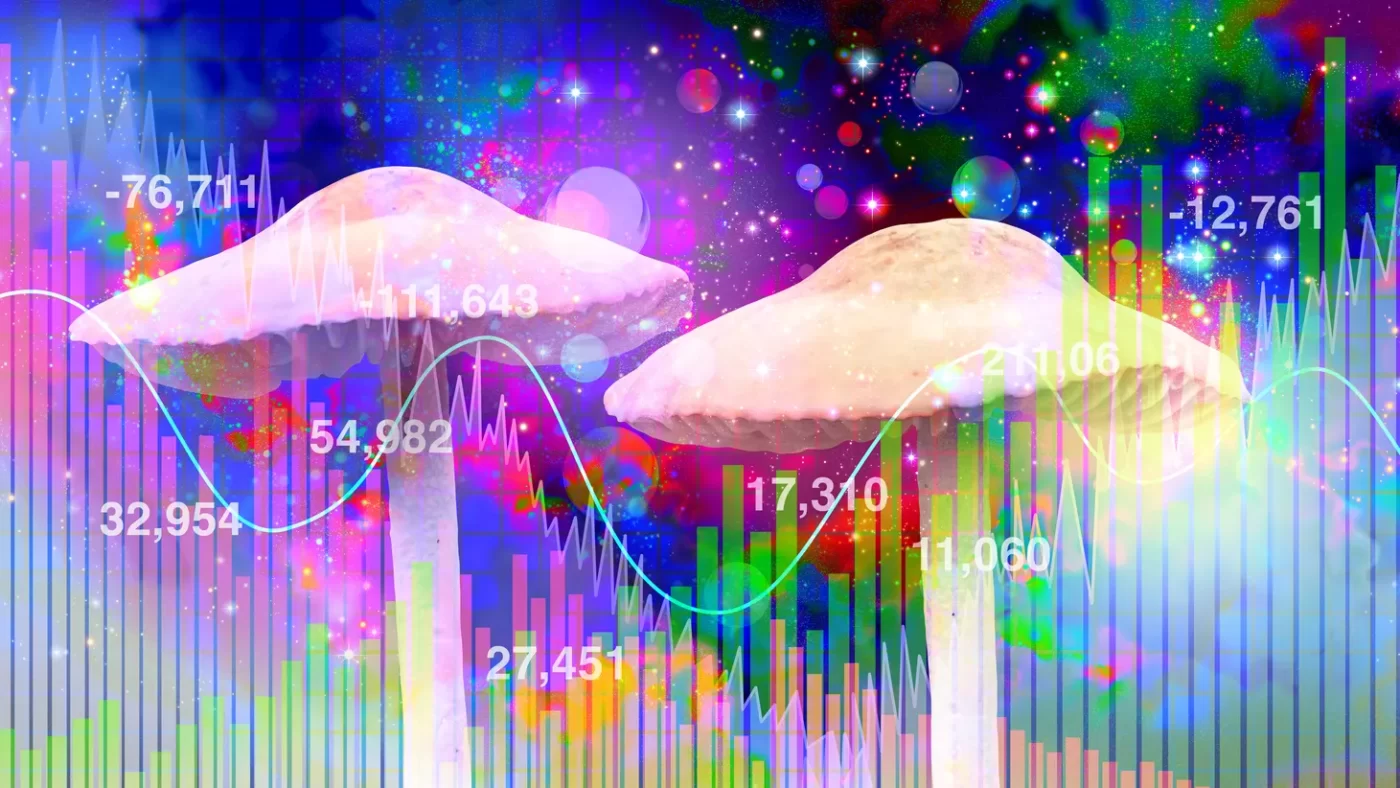Uncategorized
Psychedelics ETF: A Comprehensive Guide
Investing in psychedelics has become increasingly popular in recent years, with many investors looking to capitalize on the growing interest in alternative medicines. One way to invest in psychedelics is through a Psychedelics ETF, which provides exposure to companies involved in the research, development, or distribution of psychedelic medicines.
In this article, we’ll take a closer look at Psychedelics ETFs and what investors need to know before investing in them. We’ll also highlight some of the top Psychedelics ETFs available today and what factors investors should consider when choosing an ETF.
What is a Psychedelics ETF?
A Psychedelics ETF is a type of exchange-traded fund that provides exposure to the psychedelics industry. ETFs are investment funds that trade on stock exchanges, just like individual stocks. They typically track an index or benchmark and are designed to provide investors with diversified exposure to a particular market or sector.
A Psychedelics ETF typically includes companies that are involved in the research, development, or distribution of psychedelic medicines. These companies may be involved in the production of psychedelic substances, or they may be developing treatments or therapies that use psychedelic substances to treat mental health conditions such as depression, anxiety, and PTSD.
Investing in a Psychedelics ETF can provide investors with exposure to an emerging industry that has the potential for high growth and potentially high returns. However, investors should be aware that investing in a new and still uncertain field of research comes with some risks. It’s essential to conduct thorough research and due diligence before investing in any ETF, including a Psychedelics ETF.
Top Psychedelics ETFs
Several Psychedelics ETFs are currently available for investors, with new ones launching regularly. Here are a few of the most popular ones:
1. Horizons Psychedelic Stock Index ETF (PSYK)
The Horizons Psychedelic Stock Index ETF is one of the first ETFs to focus specifically on the psychedelic medicine industry. It tracks the North American Psychedelics Index, which includes companies that are involved in the research, development, or distribution of psychedelic medicines. The ETF has an expense ratio of 0.85% and is available for investors in both Canada and the United States.
2. Global X Psychedelic ETF (PSY)
The Global X Psychedelic ETF is another ETF that focuses on the psychedelic medicine industry. It tracks the Solactive Psychedelic Index, which includes companies that are involved in the research, development, or distribution of psychedelic medicines. The ETF has an expense ratio of 0.50% and is available for investors in the United States.

3. AdvisorShares Psychedelics ETF (PSIL)
The AdvisorShares Psychedelics ETF is another ETF that provides exposure to the psychedelics industry. It invests in companies that are involved in the development, production, or distribution of psychedelic medicines. The ETF has an expense ratio of 0.85% and is available for investors in the United States.
4. Defiance Next Gen Altered Experience ETF (PSY)
The Defiance Next Gen Altered Experience ETF is another Psychedelics ETF that tracks companies involved in the development and commercialization of products that alter human experience and consciousness. The ETF has an expense ratio of 0.30% and is available for investors in the United States.
Factors to Consider When Choosing a Psychedelics ETF
Investors should consider several factors when choosing a Psychedelics ETF, including:
- Expense ratio: The expense ratio is the fee that the ETF charges investors to cover the costs of managing the portfolio
-
Tracking error: The tracking error measures how closely the ETF tracks the index or benchmark that it is designed to follow. A higher tracking error may indicate that the ETF is not effectively tracking the market, leading to lower returns for investors.
-
Composition and holdings: Investors should carefully review the composition and holdings of the ETF to ensure that it aligns with their investment goals and values. For example, some investors may prefer to avoid companies that produce or distribute illegal drugs, even if they are involved in the research and development of psychedelic medicines.
-
Geographic exposure: Some Psychedelics ETFs may have a focus on specific geographic regions, such as North America or Europe. Investors should consider their desired geographic exposure when choosing an ETF.
-
Liquidity: Investors should ensure that the ETF they choose has sufficient liquidity, meaning that it can be easily bought or sold on the stock exchange. ETFs with low liquidity may be subject to wider bid-ask spreads, leading to higher transaction costs for investors.
Benefits of Investing in a Psychedelics ETF
Investing in a Psychedelics ETF can provide investors with several potential benefits, including:
-
Diversification: A Psychedelics ETF can provide investors with diversified exposure to the psychedelic medicine industry, reducing the impact of individual company performance on overall portfolio returns.
-
Potential for high growth: The psychedelic medicine industry is still in its early stages, and there is potential for high growth and significant returns for investors in the long term.
-
Convenience and accessibility: ETFs are easy to buy and sell, making them accessible to a wide range of investors. They can also be held in tax-advantaged accounts, such as IRAs and 401(k)s.
Risks of Investing in a Psychedelics ETF
While there are potential benefits to investing in a Psychedelics ETF, investors should also be aware of the risks. These include:
-
Early stage of the industry: The psychedelic medicine industry is still in its early stages, and it may take some time for companies to develop and commercialize products successfully. This may result in volatility and potentially lower returns for investors in the short term.
-
Regulatory risks: Psychedelic medicines are still illegal in many parts of the world, and the regulatory landscape is complex and evolving. Changes in regulations could impact the development and commercialization of psychedelic medicines, which could affect the performance of Psychedelics ETFs.
-
Company-specific risks: Investing in individual companies involved in the psychedelic medicine industry can come with company-specific risks, such as management changes, product failures, or financial difficulties. These risks can also impact the performance of Psychedelics ETFs.
Conclusion
Investing in a Psychedelics ETF can provide investors with exposure to an emerging and potentially high-growth industry. However, investors should be aware of the risks and conduct thorough research and due diligence before investing. When choosing a Psychedelics ETF, investors should consider factors such as the expense ratio, tracking error, composition and holdings, geographic exposure, and liquidity. With careful consideration, a Psychedelics ETF can be a valuable addition to a diversified investment portfolio. Some of the top Psychedelics ETFs currently available include the Horizons Psychedelic Stock Index ETF, the Global X Psychedelic ETF, the AdvisorShares Psychedelics ETF, and the Defiance Next Gen Altered Experience ETF.



